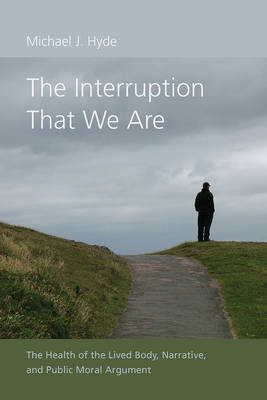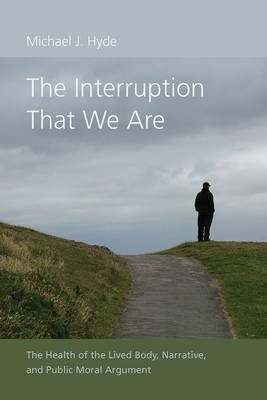
- Afhalen na 1 uur in een winkel met voorraad
- Gratis thuislevering in België vanaf € 30
- Ruim aanbod met 7 miljoen producten
- Afhalen na 1 uur in een winkel met voorraad
- Gratis thuislevering in België vanaf € 30
- Ruim aanbod met 7 miljoen producten
The Interruption That We Are
The Health of the Lived Body, Narrative, and Public Moral Argument
Michael J HydeOmschrijving
In a world of ever-increasing medical technology, a study of the need for wisdom, truth, and public moral argument
In this provocative and interdisciplinary work, Michael J. Hyde develops a philosophy of communication ethics in which the practice of rhetoric plays a fundamental role in promoting and maintaining the health of our personal and communal existence. He examines how the force of interruption--the universal human capacity to challenge our complacent understanding of existence--is a catalyst for moral reflection and moral behavior.
Hyde begins by reviewing the role of interruption in the history of the West, from the Big Bang to biblical figures to classical Greek and contemporary philosophers and rhetoricians to three modern thinkers: Søren Kierkegaard, Martin Heidegger, and Emmanuel Levinas. These thinkers demonstrate in various ways that interruption is not simply a heuristic tool, but constitutive of being human. After developing a critical assessment of these thinkers, Hyde offers four case studies in public moral argument that illustrate the applicability of his findings regarding our interruptive nature. These studies feature a patient suffering from heart disease, a disability rights activist defending her personhood, a young woman dying from brain cancer who must justify her decision, against staunch opposition, to opt for medical aid in dying, and the benefits and burdens of what is termed our "posthuman future" with its accelerating achievements in medical science and technology. These improvements are changing the nature of the interruption that we are, yet the wisdom of such progress has yet to be determined. Much more public moral argument is required.
Hyde's philosophy of communication ethics not only calls for the cultivation of wisdom but also promotes the fight for truth, which is essential to the livelihood of democracy.
Specificaties
Betrokkenen
- Auteur(s):
- Uitgeverij:
Inhoud
- Aantal bladzijden:
- 232
- Taal:
- Engels
- Reeks:
Eigenschappen
- Productcode (EAN):
- 9781611177077
- Verschijningsdatum:
- 10/09/2018
- Uitvoering:
- Hardcover
- Formaat:
- Genaaid
- Afmetingen:
- 157 mm x 226 mm
- Gewicht:
- 453 g

Alleen bij Standaard Boekhandel
Beoordelingen
We publiceren alleen reviews die voldoen aan de voorwaarden voor reviews. Bekijk onze voorwaarden voor reviews.









